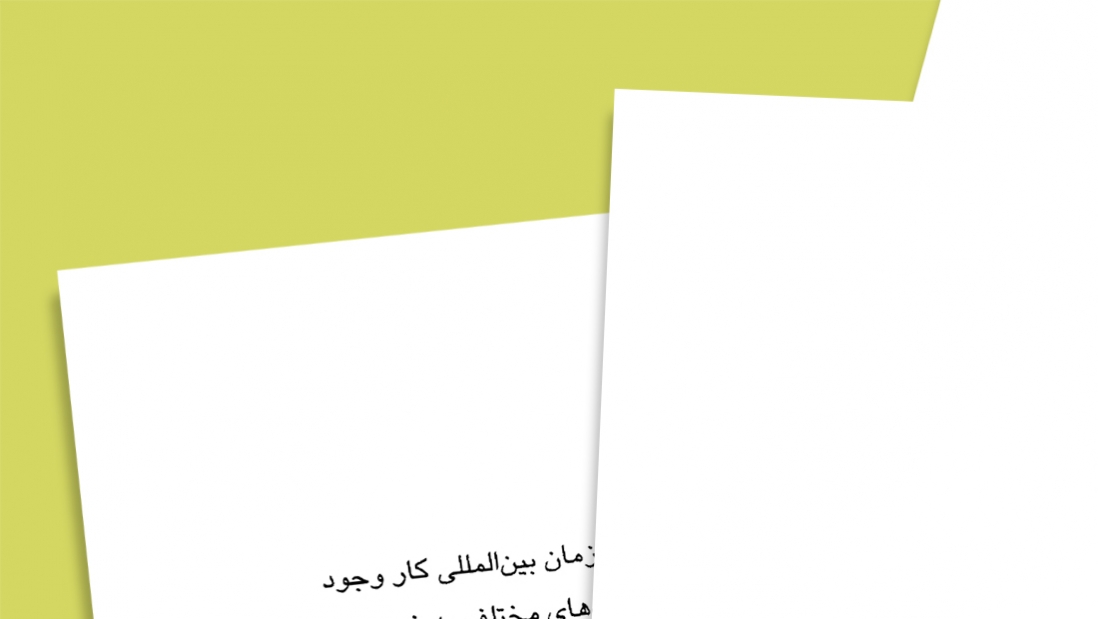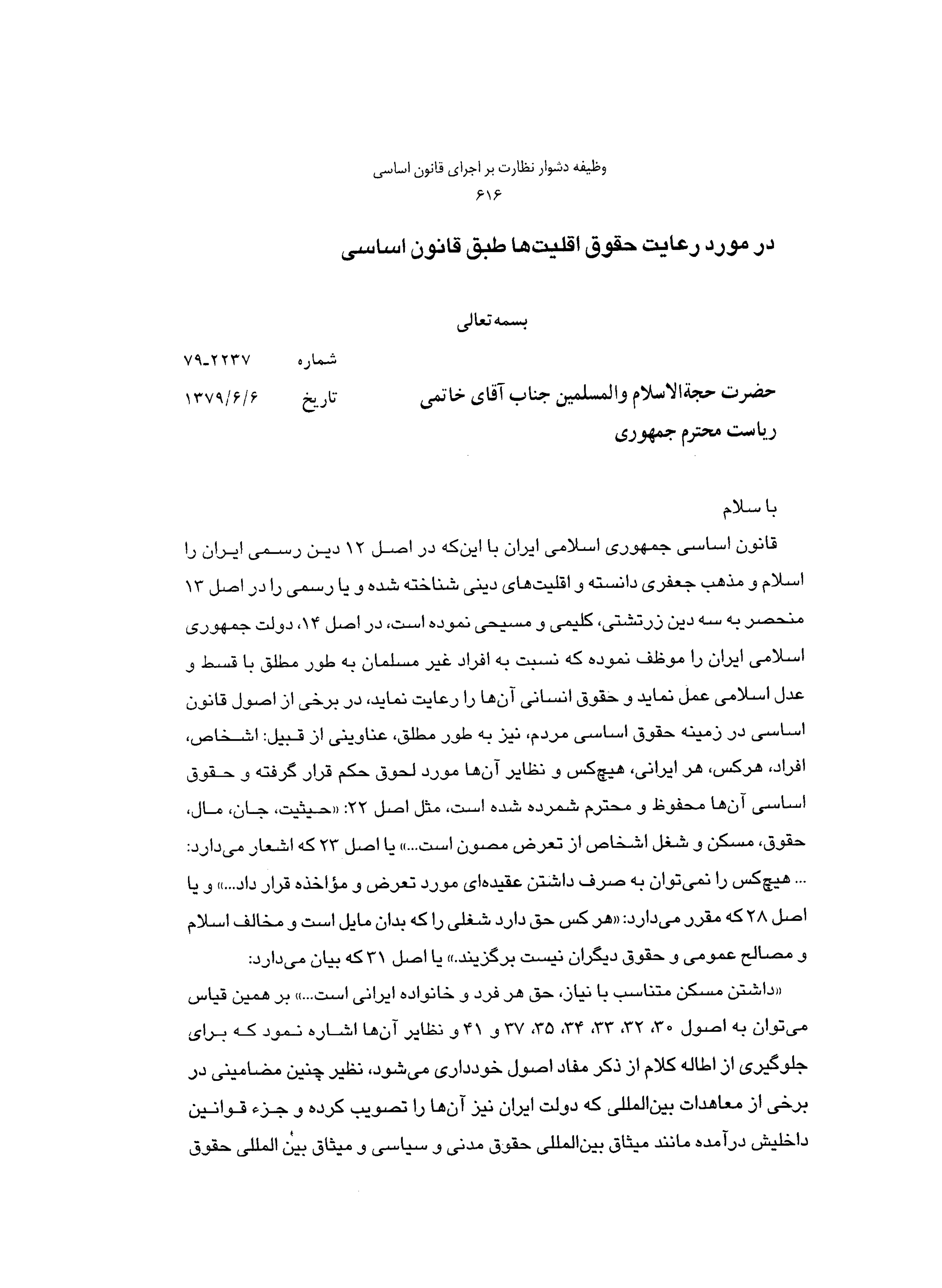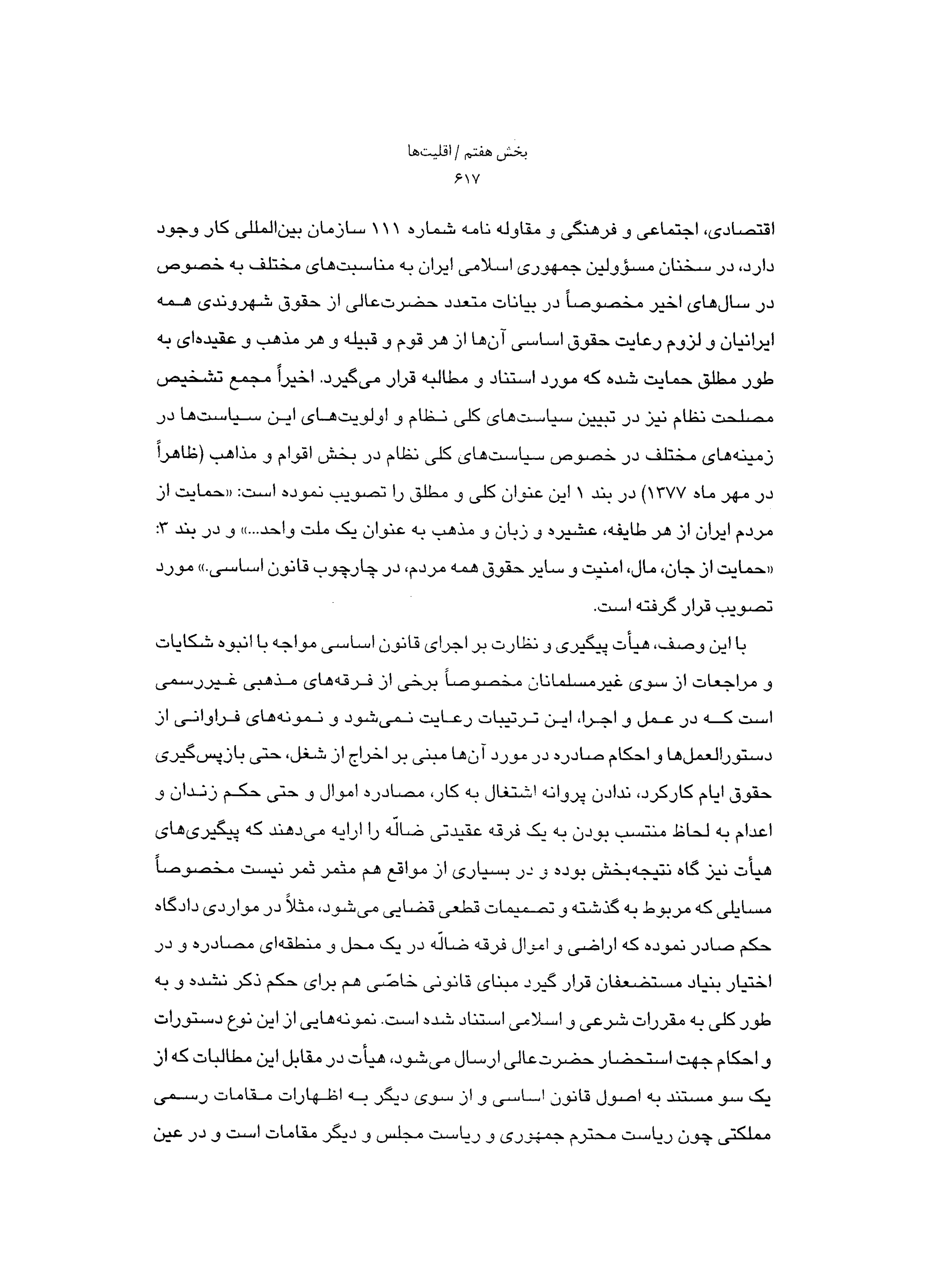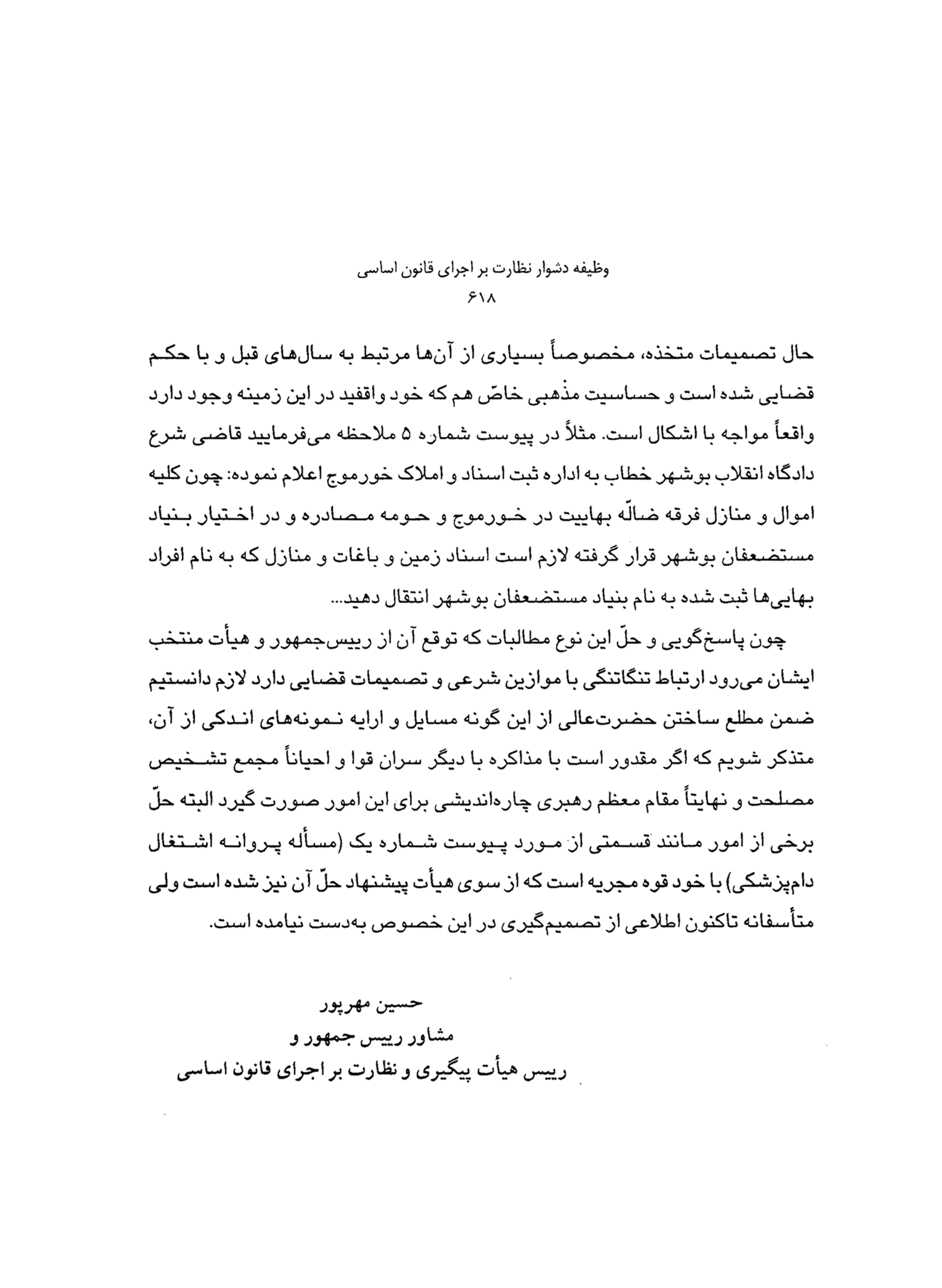
12 ژوئن 2017
نقض حقوق شهروندان بهائی بر خلاف قانون اساسی
در این نامه، رئیس هیئت پیگیری و نظارت بر اجرای قانون اساسی، حسین مهرپور به رئیس جمهور وقت، محمد خاتمی اظهار میدارد که هر چند در قانون اساسی و بیانات ریاست جمهوری، رعایت حقوق اساسی همه شهروندان ایرانی ذکر شده با این وصف، این هیئت با انبوه شکایات و مراجعات از سوی غیرمسلمانان به خصوص بهائیان مواجه است که این قوانین و دستورالعملها در عمل، اجراء نمیشوند. در همین زمینه، نمونههای بسیاری از احکام قضایی که در گذشته بدون مبنای قانونی خاص و فقط به استناد به مقررات شرع، صادر شدهاند، ارسال میشود.... چون توقع پاسخ گویی و حلّ مطالبات از رئیس جمهور میرود اگر مقدور است با مذاکره با دیگر سران قوا، مجمع تشخیص مصلحت و حتی مقام معظم رهبری، برای این امور چارهاندیشی صورت گیرد.

The Difficult Task of Oversight on the Execution of the Constitution
616
Concerning Respect for the Rights of Minorities in Accordance with the Constitution
In His Name, the Exalted
Number: 79-2237
Date: 1379/6/6 (August 27, 2000)
His Excellency Hujjatol-Islam of Muslims Mr. Khatami, the Esteemed President
With Greetings:
While, the Constitution of Islamic Republic of Iran, in Paragraph 12, has recognized Islam and Ja‘fari sect as Iran’s official religion, and in Paragraph 13, has specified the recognized or official religious minorities to Zoroastrian, Jewish, and Christian Faiths, it nevertheless, has obligated the government of Islamic Republic, in Paragraph 14, to treat non-Muslim individuals absolutely with Islamic justice and fairness and respect their human rights. Moreover, in other paragraphs of the Constitution concerning people’s fundamental rights, references such as, persons, individuals, anyone, every Iranian, no one, and similar phrases, are used to include them under this provision to preserve and respect their fundamental rights. For example, in Paragraph 22: “dignity, life, property, shelter, and employment of persons are immune from infringement”, or Paragraph 23 which maintains: “…no one should be subjected to infringement or interrogation solely because of one’s beliefs…”, or Paragraph 28 which stipulates: “anyone has the right to obtain employment of one’s choice as long as it does not contravene with Islam and public interest and the rights of others.” Or Paragraph 31 which states: “having a house, commensurate with one’s needs, is the right of every Iranian individual and household…”. Similarly, Paragraphs 30, 32, 33, 34, 35, 37, and 41, which are not detailed here for brevity, state the same principles. These concepts, which also exist in such international conventions as the International Covenant on Civil and Political Rights, the International Covenant on Economic, Social and Cultural Rights (ICESCR),

Section 7/Minorities
617
and the International Labor Organization’s Convention 111, have been referred to in various occasions in the statements of the officials of the Islamic Republic of Iran, especially in recent years and particularly in numerous comments made by Your Excellency about the citizenship rights of all Iranians and the necessity of observing them regardless of race, ethnicity, religion and belief, which have been absolutely supported and are being documented and demanded. Recently, in interpreting the general policies of the government and the priorities of these policies in different areas, pertaining to the regime’s general policies on ethnic groups and religions (apparently in the month of Mehr of 1377 [October 1998]), in Paragraph 1, the Expediency Council has also ratified this general and absolute principle: “support of Iranian people regardless of tribe, clan, language, and religion all as one united people…” and in Paragraph 3: “supporting the life, property, security and other rights of the people within the framework of the Constitution”. Nonetheless, the Board of Monitoring the Implementation of Provisions of the Constitution is confronted by massive complaints and protests of non-Muslims, especially some of unrecognized religious sects, [stating that] none of these provisions is observed in action and implementation. They present numerous officially-issued documents and instructions pertaining to their expulsion from employment, even asking to refund the salaries earned for years of employment, refusal to issue work permits, confiscation of properties and even issuing prison sentences and execution because of membership in a misguided sect. Persual by the Board, has at times, been fruitful and in many occasions ineffective, especially issues which refer to the past and those that pertain to definite judicial decisions. For example, in several cases, the court has ruled that the lands and properties of the misguided sect in a neighborhood and in a region be confiscated and be given to the Foundation for the Underprivileged. No particular legal basis has been cited for this ruling and reference has only been made to Islamic and Sharia laws. Instances of these instructions and sentences are being sent to Your Excellency for your perusal. The Board is truly facing a problem when presented with these demands which are, on the one hand, based on the provisions of the Constitution, and on the other hand, on the statements of the official authorities of the country such as the esteemed President and the Speaker of the Parliament and other officials. Such

The Difficult Task of Oversight on the Execution of the Constitution
618
decisions, especially many of them, pertain to previous years with officially issues rulings, for which, as you are aware, there is distinct religious sensitivity. For example, in attachment 5, you will observe that, addressing the Office of Records of Documents and Property Deeds of the city of Khormoj, the Sharia Judge of the Revolutionary Court of Boushehr has declared: because the entirety of the properties and houses belonging to the misguided sect of Bahá’ísm in Khormoj and its vicinities have been confiscated and relinquished to the Foundation for the Underprivileged, the documents under the names of Bahá’ís for their lands, orchards, and houses must be transferred to and registered in the name of the Foundation for the Underprivileged of Boushehr. Because accountability and solution for such problems, which is expected of the President and his cabinet, is tightly related to judicial decisions and sharia standards, we found it necessary, while informing Your Excellency and presenting a small sample of evidence for it, to emphasize that, if possible, other high officials and possibly the Expediency Council, and ultimately the Supreme Leader be consulted to come up with a resolution for these matters. Of course, solving some of these issues, such as the one in a section in attachment 1 (the issue of work permit for a veterinarian), falls within the domain of the executive power, for whom solutions have been suggested by the Board, but unfortunately, so far, we have not received any information about any decision on this matter.
Hosein Mehrpour,
Advisor to the President and
the Chairman of the Board of Oversight on the Execution of the Constitution
